2022 – Boluwatife Aluko, MD, & Noor Baloch, MD
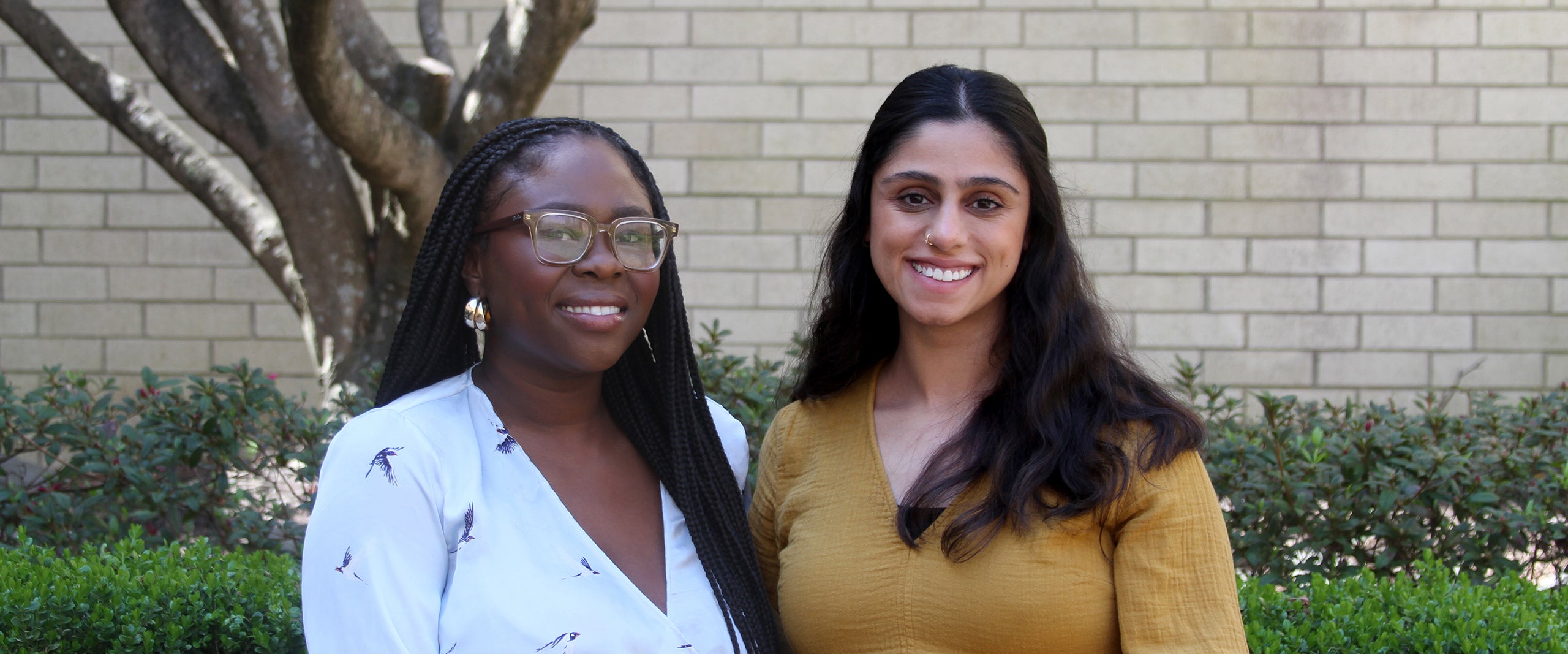
Two members of our 2022 cohort of Tiana Nicole Williams Scholars were third year medical students, Bolu Aluko, and Noor Baloch. They developed a service project working with Medicine Pediatric residents in a local community clinic. They presented sessions and trainings for residents to enhance screenings and share community resources to patients. In addition, scholars collaborated with the other 2022 scholars to host interactive seminars.
Mentor: Dr. Mary Catherine Turner, Med-Peds Residency Director, ECU Health Site: Pitt County Care Clinic, Greenville, NC
2021 – Nupur Jain, & Supriya Sivadanam, MD
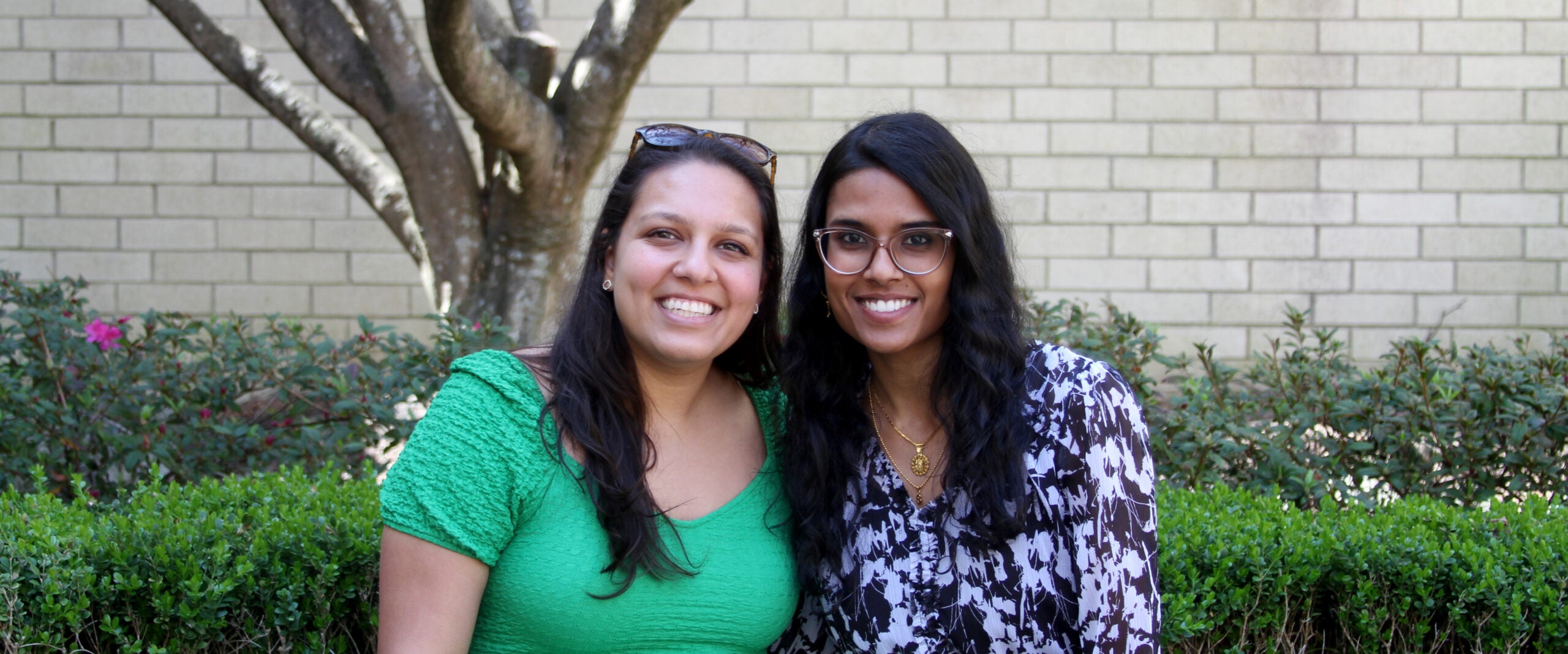
Our 2021 Tiana Nicole Williams Scholars were second year medical students, Nupur Jain, and Supriya Sivadanam. Together they worked with local after school programs introducing art as a medium for educating adolescents about healthy and unhealthy relationships. Art is used to bridge the difficult topic of interpersonal violence with teens at local community centers. Nupur and Supriya also hosted a session for Brody medical students. If you would like to read more about this project, visit 2021 Project Summary.
Mentor: Dr. Tana Hall, Site: Jack Minges Boys and Girls Club,
2020 – Simran Koura, MD
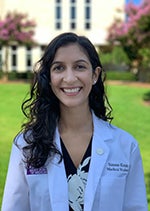
Our 2020 Tiana Nicole Williams Scholar was second year medical student, Simran Koura. Simran worked with the local Boys and Girls club to educate adolescents about healthy and unhealthy relationships and to teach them the signs of interpersonal violence. She also hosted a standardized patient experience with the Foundations of Doctoring curriculum to provide medical students with practice interviewing patients who are victims of domestic violence.
Mentor: Dr. Jennifer Hodgson Site: Jack Minges Boys and Girls Club, Winterville, NC
2018 – Kaitlyn Brobst, MD, Gabrielle Kattan, MD, & Chelsea Viscardi, MD
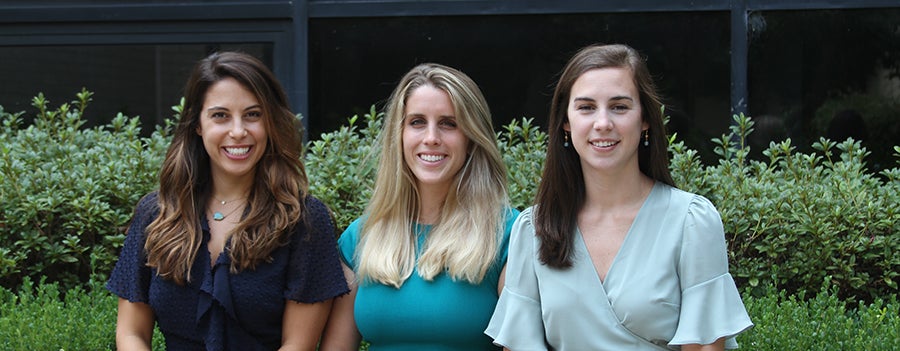
Our 2018 Tiana Nicole Williams Scholars were second year medical students, Kaitlyn Brobst, Gabi Kattan and Chelsea Viscardi. They developed a service project for adolescent females aged 10-14 at the Boys and Girls club. They presented seven workshop sessions designed to prevent IPV and introduce healthy relationships and sexual health education. In addition, scholars collaborated with 2020 scholars to host interactive noon seminars on screening and interviewing patients that were held during Domestic Violence Awareness week. Coordinated standardized patient encounters in the Doctoring course following these seminars.
Mentor: Dr. Tana Hall, Site: Jack Minges Boys and Girls Club, Winterville, NC
2017 – Drs. Lauren Forbes, Amber Gautam, Ryan Skrabal, Nga Tran, & Mansi Trivedi
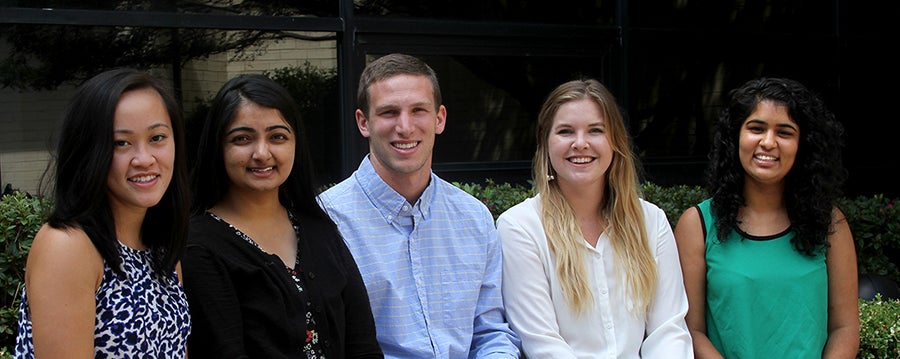
Our 2017 Tiana Nicole Williams Scholars are second year medical students, Nga Tran, Mansi Trivedi, Ryan Skrabal, Lauren Forbes, and Amber Gautam. They developed a multi yearproject integrating interpersonal violence competencies as curricular modification for preclinical medical students. Teaching strategies focused on helping students to recognize the signs of trauma and abuse.
Mentor: Dr. Mary Nyangweso, Department of Philosophy, East Carolina University
2016 – Pooja Sarin, MD, Angela Vuong, MD, & Emily Marx, MD
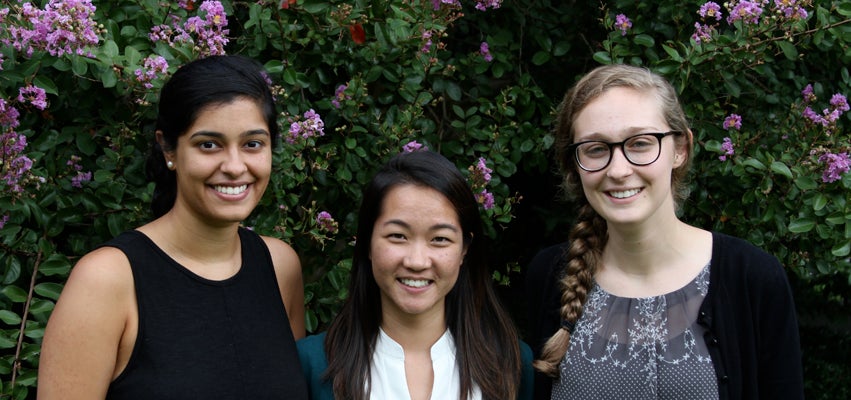
Our 2016 Tiana Nicole Williams Scholars were second year medical students, Pooja Sarin, Angela Vuong, and Emily Marx. Their project, Domestic Violence has NO Boundaries was a program promoting safe and healthy relationships while increasing access to support services the Greenville community. Scholars developed resources to be placed in women’s restrooms throughout Pitt County.
Mentor: Dr. ElaineCabinum-Foeller, Department of Pediatrics
Site: The Center for Family Violence Prevention
2015 – Kelly Boyd, MD, and Sophie Austin, MD
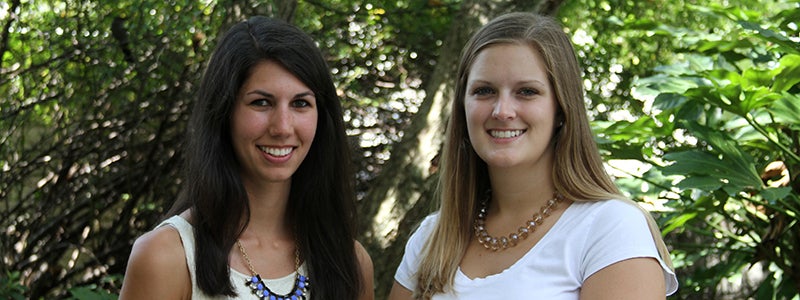
Our 2015 Tiana Nicole Williams Scholars are second year medical students, Kelly Boyd and Sophie Austin. Kelly and Sophie are raising awareness on the East Carolina University campus by providing topic information and resources to victims of intimate partner violence through the ECU Cares website.
In the tenth year of the scholars program, Kelly and Sophie are presently completing a project focused on providing intimate partner violence information and resources to ECU students.
Mentor: Georgia Childs, Asst. Director, Campus Wellness, East Carolina University
Site: East Carolina University
2014 – Cara Beth Carr, MD, and Nikki Etxegoien Richardson, MD
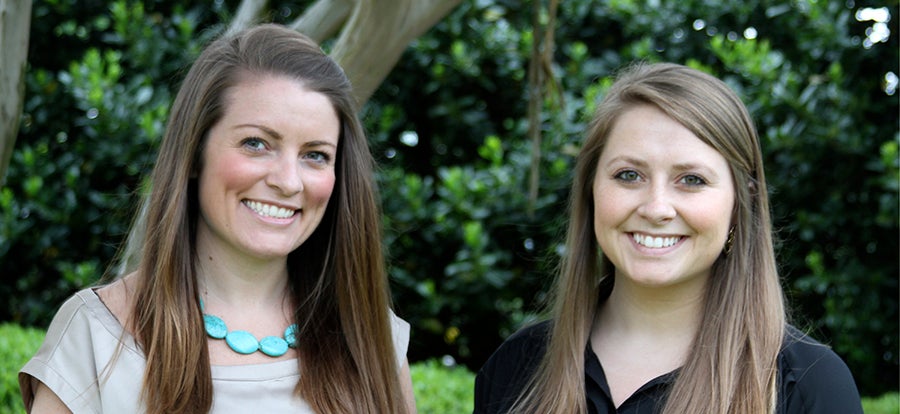
The 2014 Tiana Nicole Williams Scholars were second year medical students, Cara Beth Car and Nikki Etxegoien. They developed a service project, “SHARE–Sexual Health and Research Education,” a program providing educational sessions on sexual health and violence prevention for thirteen to twenty year-old members of the foster care system in the Greenville community.
Mentor: Coral Steffy, MD, Department of Pediatrics, Brody School of Medicine
Site: Links Program, Pitt County Department of Social Services
2013 – Claudia Douglas, MD and Dustin Washburn, MD
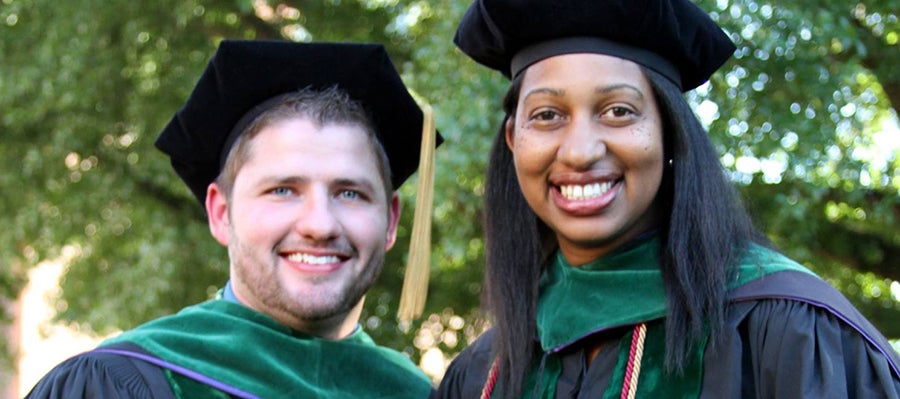
The 2013 Tiana Nicole Williams Scholars were second year medical students, Claudia Douglas and Dustin Washburn. They collaborated with past scholar, Ashley Hink on a research project evaluating intimate partner violence, mental illness and substance abuse among female patients admitted to the trauma surgery service at Vidant Medical Center.
2012 – Jenni Hoffmann, MD

The 2012 Tiana Nicole Williams Scholars was second year medical student, Jenni Hoffmann, Jenni served as the seventh scholar for the Tiana Nicole Williams Scholarship. She developed a research project evaluating domestic violence education in North Carolina medical school curriculums.
Faculty Mentor: Dr. Peggy Goodman, ECU/Brody Department of Emergency Medicine
2011 – Shannon Banks, MD and Demi Dawkins, MD
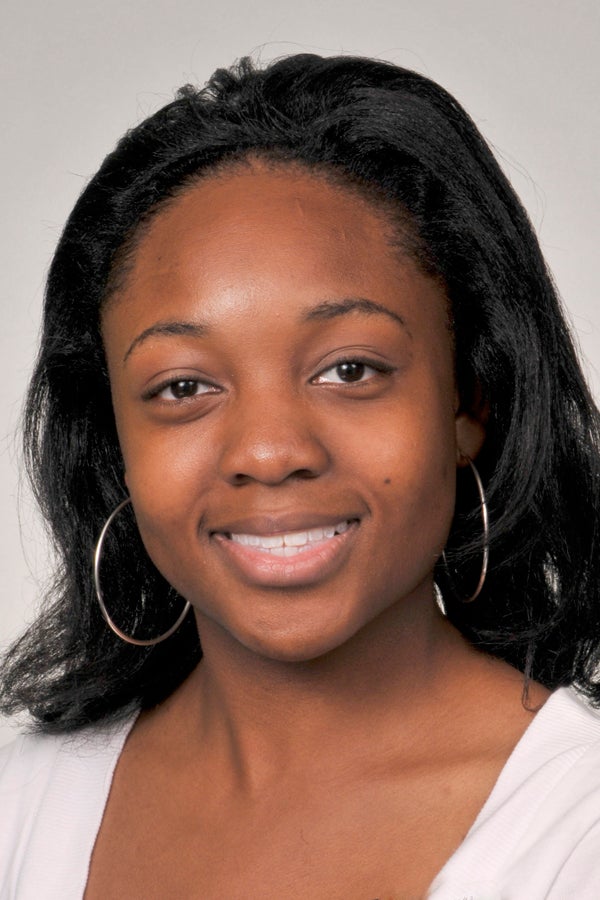
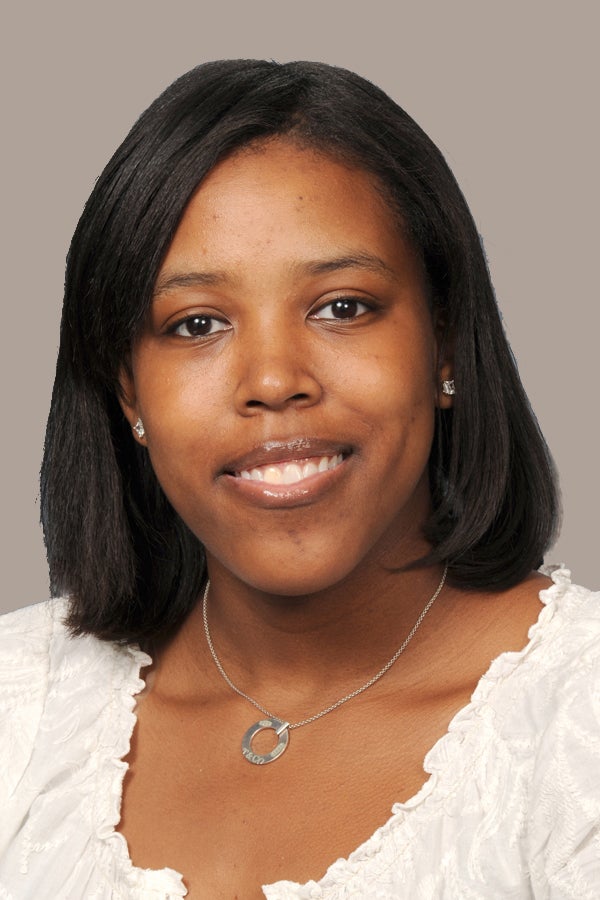
Shannon and Demi partnered together to design a community service project promoting awareness and increasing education about domestic violence in younger age groups, primarily middle and high school aged children. Their project involved presenting an age appropriate performance on domestic violence to younger audiences and then engaging them in discussions on what they had seen….
2010 – Ashley Hink, MD

Ashley served as the fifth scholar during the 2010 term of the Tiana Nicole Williams Scholarship. The first objective of Ashley’s project was to extend health education and advocacy services to the clients of the Center for Family Violence Prevention in Greenville, NC.
Those who experience IPV are more likely to experience a host of adverse health outcomes as a result of the abuse, including poor control of chronic diseases like hypertension and diabetes, depression, anxiety, inflammatory bowel disease, STIs, unplanned and complicated pregnancies, chronic pain, and substance abuse. Health care is not always a priority for women in abusive relationships, or those that have recently left their partners. Safety, protection of their children, finding a new residence, and securing financial stability can all take precedence over self-care for many women exiting abusive relationships. In addition, studies indicate that despite recommended guidelines, many health care providers do not screen or inquire their patients about IPV, leaving little opportunity for patients to disclose their abuse and get appropriate care for health problems that are manifestations of their abuse. Many agencies in metropolitan areas, such as Interact of Wake County, have on-site health care providers for their clients and residents of their Safe House. This integrative model helps reduce barriers to care, and allows clients to receive care from providers that have special sensitivity to the health implications of IPV. The Center for Family Violence Prevention currently lacks the staff and resources to provide health-specific education and case management. Ashley’s project responds to this hoping to alleviate some of the needs. Ashley also provides one-on-one and group health education and support for clients of the Center.
The second objective of Ashley’s project is to extend IPV education, resources and support to health care providers in Beaufort, Martin, Pitt and Washington Counties (the counties served by the Center for Family Violence Prevention). Health care providers are in a unique and opportunistic role to identify IPV, assist patients experiencing it, and minimize adverse health outcomes associated with IPV. Despite countless recommendation statements by medical professional associations, and the mandate by the Joint Commission for the Accreditation of Hospitals that physicians screen for IPV and assist patients experiencing it, an overwhelming number of physicians do not adequately inquire about and appropriately respond to IPV. Many physicians are also unaware of local IPV specific resources that can assist patients, and do not know how to effectively utilize them. The Center for Family Violence Prevention has lacked the resources to provide outreach to health care practices in the counties it serves, especially outside of Pitt County. Ashley works to help address this unmet need by improving provider awareness about IPV and community resources, and improve their own capacity to recognize the signs of IPV, screen patients effectively, and be supportive advocates for patients.
2009 – Melody Covington, MD
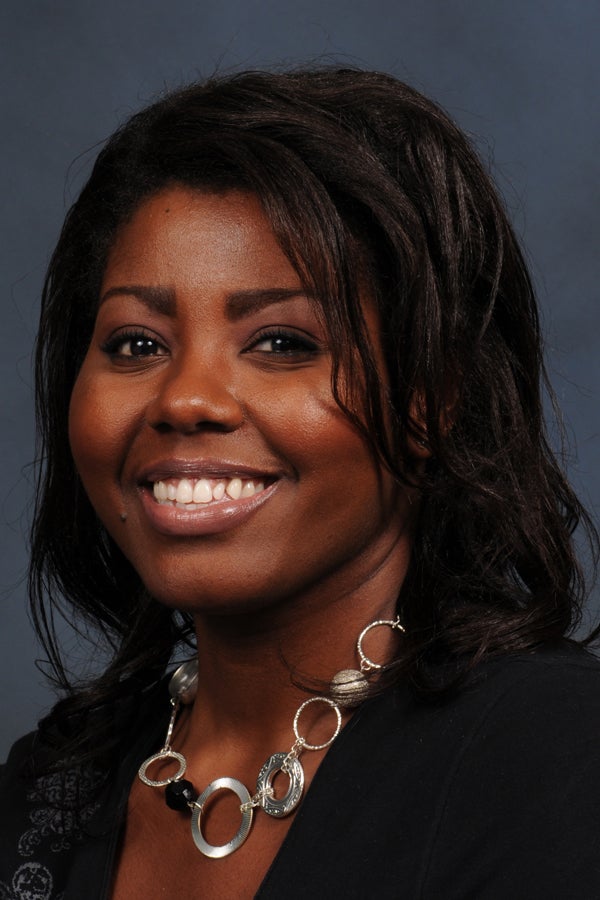
For her project, Melody chose to interact directly with the female residents of the Center for Family Violence Prevention shelter to provide medical education, vital health screenings, and fun activities. Her aim was to ensure that the residents of the shelter had an enjoyable experience during their recovery and also received the resources that they needed in order to improve their physical health. In return, she formed friendships with the residents of the shelter.
She met their children, heard their personal accounts of abuse, and also listened intently to their hopes for the future. Melody was fortunate to have mentors and colleagues join me in this project according to their expertise. Below is a list of events that were extended to the residents of the Domestic Violence Shelter:
- Glucose, Lipid-Panel/Cholesterol, Body Mass Index, and Blood Pressure Screenings
- Breast Cancer Education and Self-Exam Practice
- Healthy Meal Planning and Preparation
- Mary Kay Workshops with make-up and beauty giveaways
- Indoor Walking/ Aerobic Activities
- Self-esteem Workshop hosted by Dr. Elizabeth Byrd
- Educational session on Immunizations hosted by Dr. Susan Schmidt
- Smoking Cessation Workshop hosted by Kasey Joyner
- HIV Education and Training hosted by Esther Ross and Dr. Diane Campbell
- STD, STI, and HPV Education Workshop hosted by Cherece Grier and Martina Evans
- Calorie Counting Education and Giveaways
- Weight and Waist Measurements
- Pampering Sessions
The sponsors and contributors for this project were Wal-Mart, Ms. Martina Christie and The Laboratory Department-Family Medicine, and Kay Craven, MPH, RD, LDN, CDE, Nutrition Services and Patient Education.
2008 – Courtney Olmsted, MD
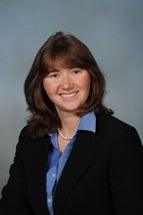
For her project, Courtney developed the home website for the Tiana Nicole Williams Memorial Endowment and also created the website housing the electronic publication, Breaking the Silence: True Stories of Domestic and Sexual Violence in Greenville, NC. She is still actively involved with submissions for the website.
A collection of stories from men, women, and children in Greenville, NC and the surrounding community who have been affected by domestic and sexual violence. Any form of printable media is accepted from poetry and essays to paintings and drawings; the sky is the limit. All submissions will be published anonymously and distributed in a publication to raise awareness about domestic violence and its affects on individuals in our community. To submit your original work or for more information please contact TNWE Submissions at tnwe.submissions@gmail.com.
2007 – Virginia Stewart, MD
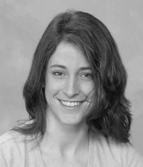
Virginia Stewart focused on three components of community outreach with her project: raising health care provider awareness and improving screening of DV, supporting student-managed clinics to promote screening, and enabling providers to connect patients to local resources.
For community outreach, She gave presentations to Pitt County high school students discussing interpersonal relationships, decision-making, warning signs, and a health care provider’s role in DV prevention/screening across different cultures and ages. The lecture format included slide presentation, video, facilitated discussion, and didactic activities.
Approximately 400 white coat cards were printed and distributed to medical students and student-managed free clinics at the Greenville Community Shelter Clinic and at Pitt County Care in Grimesland, NC. Cards included additional bilingual (English and Spanish) screening questions to supplement screening tools taught during first 2 years of medical school and local resource contact information.
Ginny interacted personally with volunteers at our local free clinics to enhance their diagnostic capabilities. She also created a manual for each clinic to continue to enhance knowledge and diagnostic capabilities of the free clinic’s staff with respect to epidemiology, and the complaints and physical exam findings that most commonly present in victims of domestic abuse in this population. These manuals contained information with DV epidemiology, screening, vulnerable populations, local and state-level resources, description of a sexual assault kit, activities and presentations mentioned above, as well as additional didactic materials.
2006 – Velvet Patterson, MD
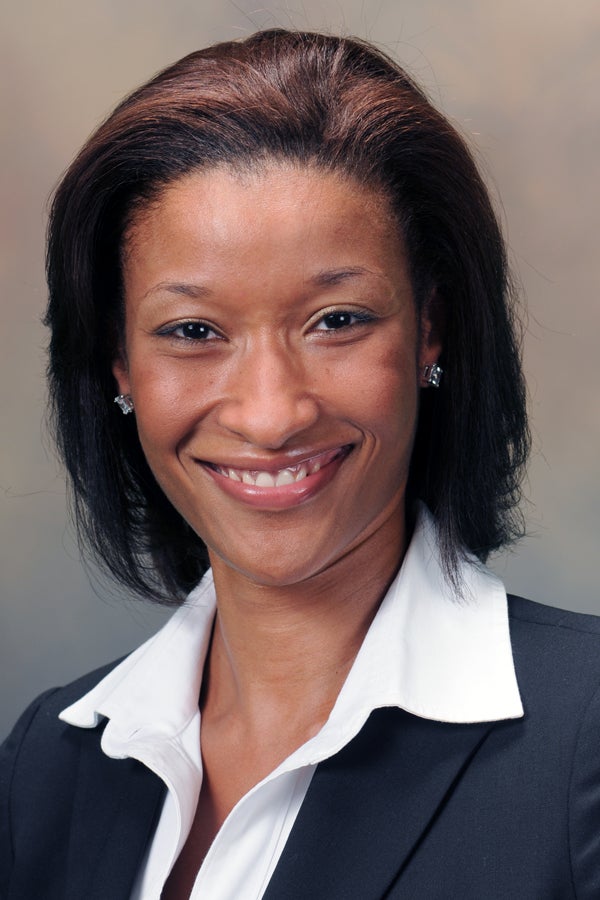
Domestic Violence changes people’s lives. While DV occurs among all racial, cultural and socioeconomic groups, the frequency among medical students and physicians is largely unknown. Even less is known about a student’s willingness or skills in interviewing and counseling patients who are in DV situations.
A 46 item questionnaire was distributed to the student mailboxes of all first and second year medical students of the Brody School of Medicine at East Carolina University beginning in August 2006. The survey tool is a combination of questions developed by E. Edwardsen, MD & A. Tulsky, MD, who conducted a domestic violence study at the University of Rochester School of Medicine in 1996 (approximately 30 questions that we have used directly or modified), and questions developed by members of the research team.
Two of the questions are adaptations from the Abuse Assessment Screen (J. McFarlane & B. Parker, 1994) which has been reliably shown to distinguish between abused and non abused women. Prior to distribution, participants were educated on the nature of the study (self-reported, anonymous, written survey), why it was being conducted and what they were being asked to do. Upon completion of the survey respondents were instructed to return it within two weeks to a designated confidential box/envelope in order to protect respondent privacy. Data was subsequently analyzed by members of the research team.